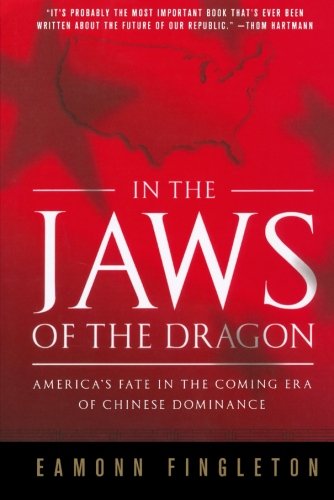◄►◄❌►▲ ▼▲▼ • B下一个新评论下一个新回复了解更多
I have long ranked second to none in my pessimism about America’s continued capacity for world leadership. People ask me why. One reason is that, having spent 27 years in East Asia, I know it is a tough old world out there — much tougher than most Americans seem to realize. In modern conditions moreover, U.S. society seems peculiarly vulnerable.
The Petraeus affair — in which CIA Director David Petraeus has had to resign because of an extramarital affair — provides a telling insight into one aspect of America’s relative weakness. Here is a top official whose national security responsibilities have been almost as great as the President’s. Yet for years he ran an egregious risk of being blackmailed by foreign powers.
For better or worse, similarly “mission critical” officials in other nations are not similarly vulnerable. This applies in spades in East Asia. Whether we are talking about China, Japan, Taiwan, South Korea, or any other nation of the Confucian world, a man’s sexual behavior is — within large limits — not a national security issue. It is simply taken for granted that “boys will be boys.”
These societies are largely blackmail-proof also in a different sense in that prominent people are routinely spied upon by their own nations’ security agencies. Thus to the extent that any official might cross a line into activities where he could pose a security risk, his superiors and colleagues are the first to know. By contrast in the United States, it is a matter of fundamental principle that the state should not spy on its citizens. Provided a U.S. official can pass routine (often quite superficial) security clearances before taking up his appointment, he is unlikely to be found out. Foreign information gathering agencies operating within the United States, however, feel no similar compunction to respect the privacy of American citizens. Thus foreign governments can be expected to know much more about prominent Americans’ vulnerabilities than does the U.S. government. This has disturbing implications not only for U.S. public life but for U.S. business.
The problem of blackmail is, of course, hardly new. But several developments have made it much more serious in recent decades:
1. In the post-Watergate era, the press is much more aggressive in using officials’ peccadillos to force resignations. Thus whereas in the 1960s the Kennedy brothers, for instance, led scandalous private lives, they were largely immune to pressure because they could rely on the press to look the other way.
2. In these globalist times, foreign governments and corporations are much more heavily engaged in every aspect of American governmental and business life than formerly.
3. Technology has drastically reduced the cost and improved the efficiency of espionage. The vulnerabilities created by the rise of email are well known (it seems to have been email that was Petraeus’s downfall). Of probably even greater significance is the rapid progress of miniaturization in video surveillance. Take, for instance, charge coupled devices (CCDs). These can now be made as small as a grain of sand, yet judiciously placed in say a bedroom they can provide a video record of all that transpires. Not only does technology make it much easier to gather highly compromising evidence but it makes it cost-effective to track a vastly larger number of victims. Not the least of the possibilities is that countless younger people can be put under surveillance long before they reach positions of significant power. Computerized record-keeping does the rest.

 RSS
RSS








